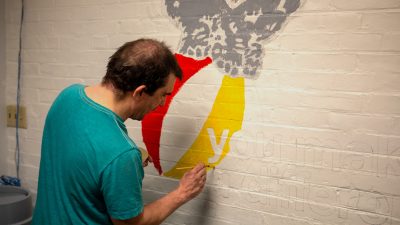Often when people hear the term “foster care,” their minds conjure images of cash-strapped families looking to earn extra income, or some kind of Dickensonian dystopia instead of what it truly is: A continuously rewarding and life-changing experience for both foster parents and the higher needs children they choose to bring into their homes.
It takes a special kind of family to be willing to foster children who require more time and attention than the average child, but as many foster caregivers will attest to, it can also be one of the most rewarding. It is not uncommon for foster parents to have ongoing relationships with the children they foster after they are reunited with their birth families. Many even adopt the children they initially foster.
Let’s discuss what it takes to foster children with autism and other special needs, what is required to become a foster parent, what services are available to help in the journey, and what sort of people choose to open their hearts and homes to children that so desperately need them.
Becoming Part of the Groden Family As a Foster Parent
Since 1993, Groden Center Treatment Foster Care Program (GCTFC) has provided treatment-level foster care for a diverse population of children and youth with special needs. We have matched hundreds of children (from birth to age 21) with licensed treatment foster homes all across Rhode Island.
Because The Groden Network’s GCTFC is a DCYF (Department of Children, Youth & Families) licensed organization, those who wish to become Foster Parents for children with autism or developmental delays must go through an intensive licensing process, including an initial 30 hours of trauma-based training as well as meeting many other criteria.
Help is always a phone call away
At Groden, there is always someone ready to help, 24 hours a day, 7 days a week, 365 days a year. Our level of support and availability for our families to lean on when needed makes the GCTFC unique to foster care. We fully understand that having the ability to quickly address the questions and needs of our parents is essential to providing peace of mind, and foster family success.
Foster Parent Maura Penza-Sherry says about working with The Groden Network’s GCTFC Program:
“The Groden Center has enlightened me and my family so much and has shown us such support and care. The professionals working at The Groden Center are such kind and loving people. They make sure that the families are cared for as well as the child in their care. I and my family are truly fortunate to work with such a committed team.”
Groden has been helping families nurture and care for foster children for almost 30 years. Staff like Andrea Neri and Nancy Mabry have been with Groden for decades and have experienced and dealt with just about everything one could imagine when it comes to caring for foster children with higher needs. Their experience and knowledge is invaluable and helps to set Groden apart from other foster placement organizations.
The bottom line: At The Groden Network, our foster parents and kids are never alone.
What Kind of Person Chooses to Become a Foster Parent for Children with Special Needs?
Those who choose to foster children with autism or higher needs come from all walks of life. People of faith, nurses, teachers and social workers are just some of the kinds of people who dedicate themselves to making a difference. Here at Groden, we are so grateful that they are willing to work with us.
Getting Licensed to Foster Kids with Higher Needs
All prospective foster parents go through a rigorous vetting process. As mentioned earlier, in order to get licensed by the DCYF they need to go through many hours of training, as well as background checks and fingerprinting. Their homes need to be fire and lead inspected, they need to provide personal and professional references. And perhaps the most important part of the licensing process is the home study evaluation, where the environment that potential foster kids will be placed in is a nurturing environment.
As of this writing, Groden has twenty of their higher needs kids placed in licensed foster care homes and our staff is on call to help them with any problems that may arise.
Andrea Neri, our GCTFC’s Director of Administration sums it up this way: “We have to make sure the children we are placing in a home are going to be safe, that’s our number one concern. And when we’re looking for foster parents, we are looking for people who can be flexible, people with a sense of humor, people who can provide structure and consistency for children. Also people who can follow through. Those are really important keys for a successful foster care experience.”
The bottom line: Groden and the DCYF work to ensure that both the families and kids they are placed with are the best fit possible and that everyone has what they need to grow and prosper together.
“We witness magic every day. Seeing these children transpose in such a short period of time, has been monumental. Knowing that we have had a part in that just by opening our hearts and our home has been enchanting.” – Maura Penza-Sherry
For anyone interested in learning more about how to qualify as a foster parent for children with higher needs, you can contact us at 401-274-6310 X1229 or online:



